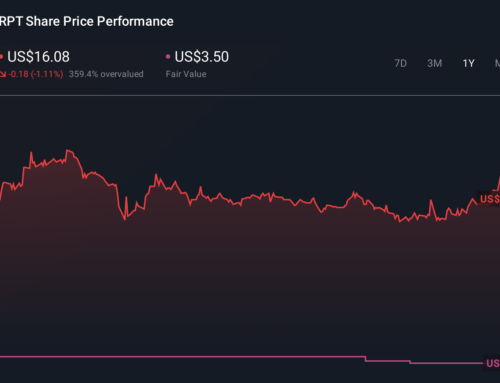Investing in Cybersecurity: Here’s What You Need To Know
June 5, 2025
In an increasingly digital world, the risk of data breaches, hacks, and various other crimes is constantly growing. The cybersecurity industry has emerged as the primary defense against cybercrime. It protects businesses, government agencies, and individual customers against threats ranging from malware and phishing attacks to ransomware, cryptocurrency-related thefts, and exploitation of vulnerabilities in new internet-enabled devices.
The growth of the cybersecurity industry presents an opportunity for investors, as the number of publicly traded firms specializing in cybersecurity has grown as well. Still, despite strong demand and growth industry wide, the cybersecurity space requires some special considerations and provides a unique set of opportunities and risks for investors. It’s important to know how to approach investing in this industry before jumping in.
Key Takeaways
- Cybersecurity is the industry tasked with protecting against cyber-crime and other digital attacks, and it benefits virtually every sector and industry.
- The demand for cybersecurity products and services is high and continuously growing, helping to increase the cybersecurity market’s size and share price gains for individual firms.
- Investors seeking exposure to cybersecurity may seek out individual company stocks or targeted ETFs.
- The threats, products, and companies involved in the cybersecurity industry are constantly evolving, requiring investors exposed to the space to remain informed and vigilant.
What Is Cybersecurity?
Cybersecurity is the practice of defending data, devices, and networks from criminal use and unauthorized access, as well as protecting the integrity and security of information. Some of the most common cyberattacks include malware (unwanted files or software that may harm a connected device or otherwise compromise data), social engineering, and phishing attacks that seek to gain unauthorized access to accounts, cryptocurrency thefts, and more.
Cybersecurity is essential today because nearly every system across society relies on computers and the internet, introducing vulnerabilities that are potentially exploitable by attackers at countless points. The different subfields of cybersecurity include:
- Information technology, tasked with securing networks and investigating breaches or data leaks
- IT auditing, responsible for ensuring compliance and standards across networks
- Ethical hacking, charged with attempting to identify system vulnerabilities in the manner of a malicious hacker
- Threat intelligence, responsible for collecting and organizing data around popular and new attack behaviors
- Digital forensics, the process of determining how a successful attack was accomplished so it may be prevented in the future
- Cryptography, writing code to protect important data
Cybersecurity Market Size and Outlook
The global cybersecurity market is valued at roughly $215 billion in 2025 and is expected to more than triple to $697 billion in the next 10 years. Sustained demand for hardware, software, and cybersecurity services should drive a compound annual growth rate of 11.3% during that time.
Related Stories
How To Invest in Cybersecurity
First Considerations
Investors considering a way to capitalize on the growing cybersecurity industry should first consider their risk tolerance relative to the space. Cybersecurity firms are in demand, but the industry is populated by both established companies and smaller, much riskier plays. Further, even the most stalwart cybersecurity firms can experience unanticipated turbulence. For example, in July 2024, an update to the software of industry leader CrowdStrike (CRWD) caused a global tech disruption, causing a temporary plunge in share price.
Besides risk, investors should also consider how and whether cybersecurity companies can match their individual investment goals. Many of these firms are poised for growth, but they may also be less likely to appeal to dividend investors.
2 Ways To Invest in Cybersecurity
The two primary ways for retail investors to gain exposure to the cybersecurity industry are through individual stocks and cybersecurity-focused exchange-traded funds (ETFs).
1. Individual Stocks
For stocks, investors must keep in mind the goals of individual companies and that different firms attempt to take on various aspects of the work of the cybersecurity industry.
Endpoint providers, for example, aim to protect the perimeter of a network through secure entry points, while network security vendors might offer services aimed at protecting individual users and their data and devices. Still other companies integrate cybersecurity strategies into other national defense and aerospace applications, providing a natural crossover between industries.
When evaluating individual stocks, consider fundamental and technical metrics before entering a position. Investors might also see whether a particular company has flashing growth metrics, such as the price-to-sales ratio, that may indicate its potential to grow. Look at recent earnings reports and trends in revenue, earnings per share (EPS), customer base, and more. It’s also essential to see how companies adapt to changing threats—does a firm have the capacity to introduce new security tools? Or is it more reliant on a popular but static offering that may lose effectiveness over time?
Once an investor has identified potential targets among individual cybersecurity stocks, purchasing them through a traditional or online broker is likely the next step.
Note
Keep in mind that these securities can be part of a larger, diversified portfolio, or investors can also provide modest diversification across the cybersecurity space by targeting different types of companies as detailed above.
2. ETFs
For many investors, the easiest way to gain broad access to cybersecurity firms is through a related ETF, such as the First Trust NASDAQ Cybersecurity ETF (CIBR).
Like other ETFs, cybersecurity funds include a basket of stocks within this space, providing automatic diversification and taking the burden of portfolio management out of the hands of the individual investor. On the other hand, ETFs do charge a modest fee in the form of an expense ratio.
Further, some funds may include cybersecurity stocks alongside a broader range of other IT or tech-focused companies, so investors will need to decide if they want to exclusively focus on cybersecurity firms or if they are comfortable with a broader view.
Tip
ETF shares can be traded through brokerages in the same way as individual stocks.
Benefits and Risks of Investing in Cybersecurity
Some benefits of investing in cybersecurity include the strong demand for companies in this space and the widespread applicability of cybersecurity products and technologies.
Because nearly every company and organization is online, the need for cybersecurity solutions and services spans all sectors and industries. Cybersecurity businesses are poised for major growth in the coming years, and both established and up-and-coming firms could benefit.
On the other hand, some of the risks of cybersecurity as an investment area include the ever-evolving nature of threats and limited resources among companies for investment in the space.
As malicious actors continue to develop new ways to engage in digital attacks, even well-established companies face new business risks that may leave them unprepared to meet customer needs. For investors, this means the risk of instability across the industry. Similarly, though companies generally increase the amount they spend on cybersecurity, many businesses still have limited resources to give to this space, meaning competition among providers is intense and often unpredictable.
Is Cybersecurity a Booming Industry?
Yes, cybersecurity is a fast-growing industry. Some analyses expect the size of the global cybersecurity business to more than triple to nearly $700 billion by 2035.
Why Should Cybersecurity Stocks Be Part of Your Investment Portfolio?
Cybersecurity stocks are attractive investments because they provide services that are in demand across virtually all sectors and industries. Many of these companies have exceptional growth potential.
Is Cybersecurity a Good Investment for Long-Term Gains?
Analysts expect that the demand for cybersecurity will continue to grow for the foreseeable future. This makes the industry a strong choice for investors planning for the long term. However, as the CrowdStrike shutdown of summer 2024 shows, even the most established companies in the space can face unanticipated challenges that can disrupt their performance.
The Bottom Line
Cybersecurity companies provide hardware, software, and services to prevent digital attacks, secure information, and protect companies, individual users, and other organizations.
The industry is rapidly growing and is expected to triple in size in the next decade. Two of the most popular ways for investors to gain exposure to the cybersecurity industry are individual stocks and related ETFs. In both cases, investors need to stay informed about news and developments in the space, particularly given that cyberthreats are constantly evolving, and to seek out professional investing advice when needed.
Search
RECENT PRESS RELEASES
Related Post
:max_bytes(150000):strip_icc()/happy-male-student-wear-headphones-waving-hand-looking-at-laptop-computer-screen-video-conference-calling-talking-with-online-skype-teacher-communicating-for-distance-education-e-learning-in-library-1179989524-3d53c081d8c849a6866cde214e3074ed.jpg)
:max_bytes(150000):strip_icc()/9_RisksofInvestingintheSP500andHowtoManageThem_final-0a3dc49ec7934ef0bdda0425f9f30e6c.png)




